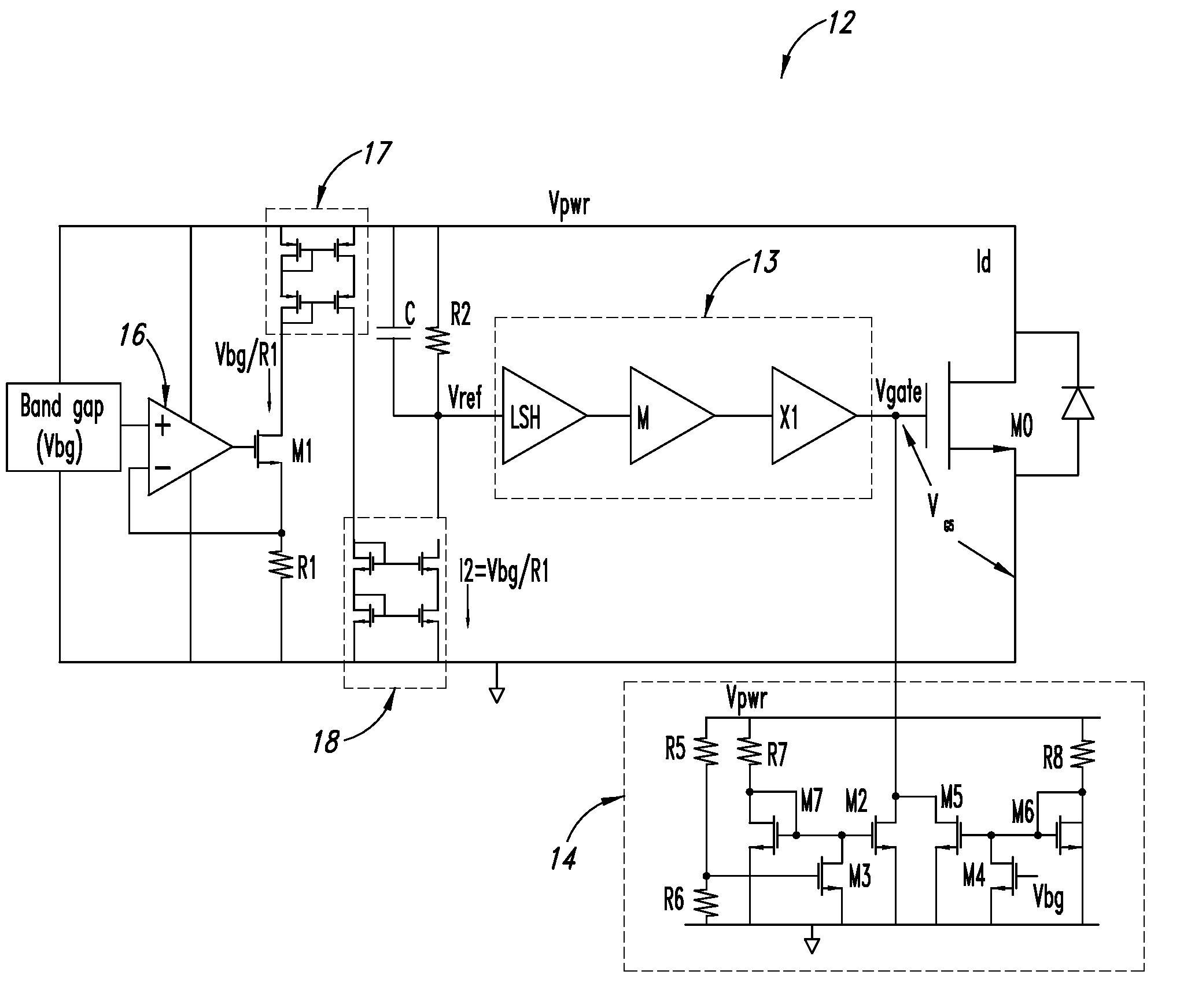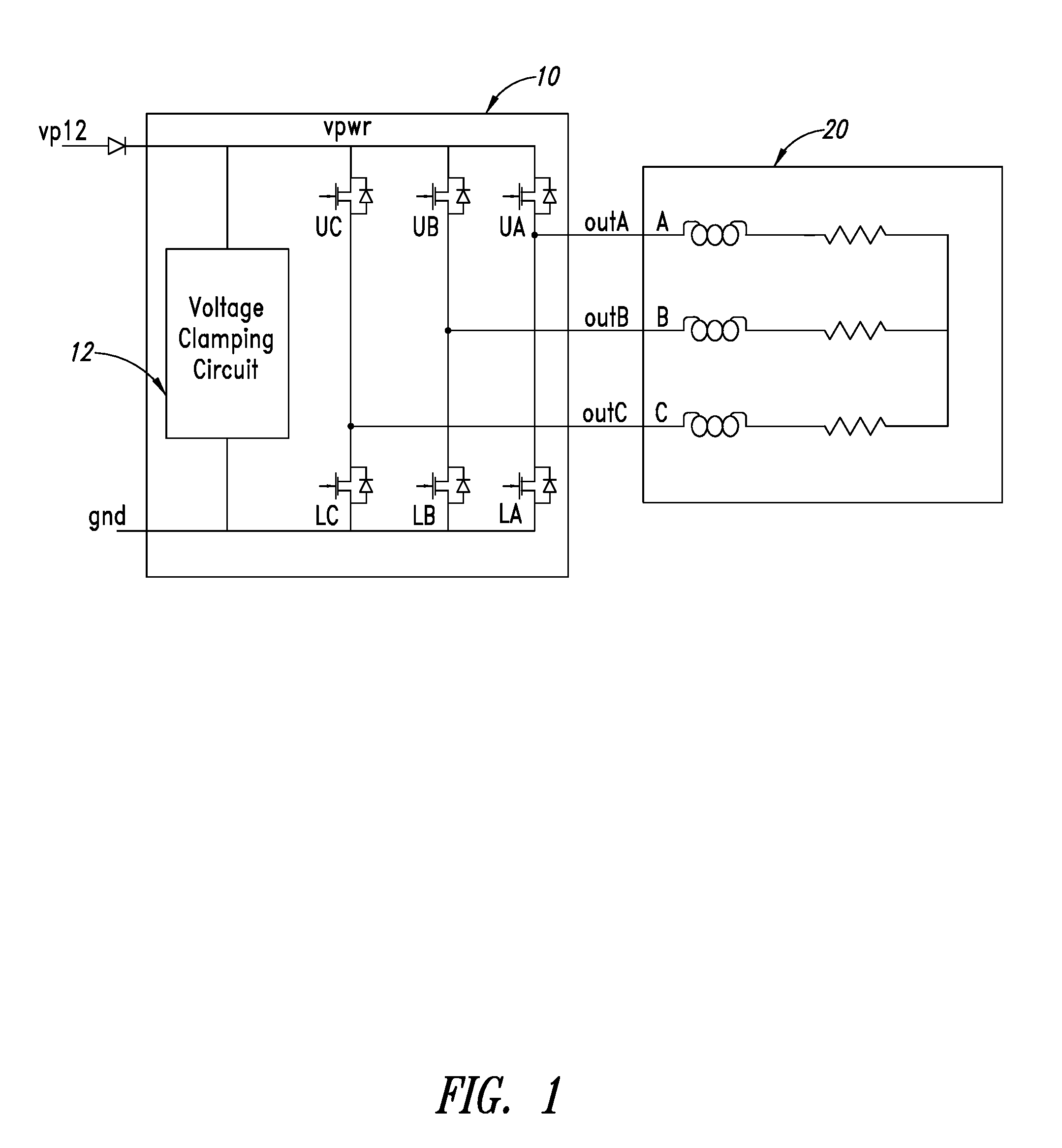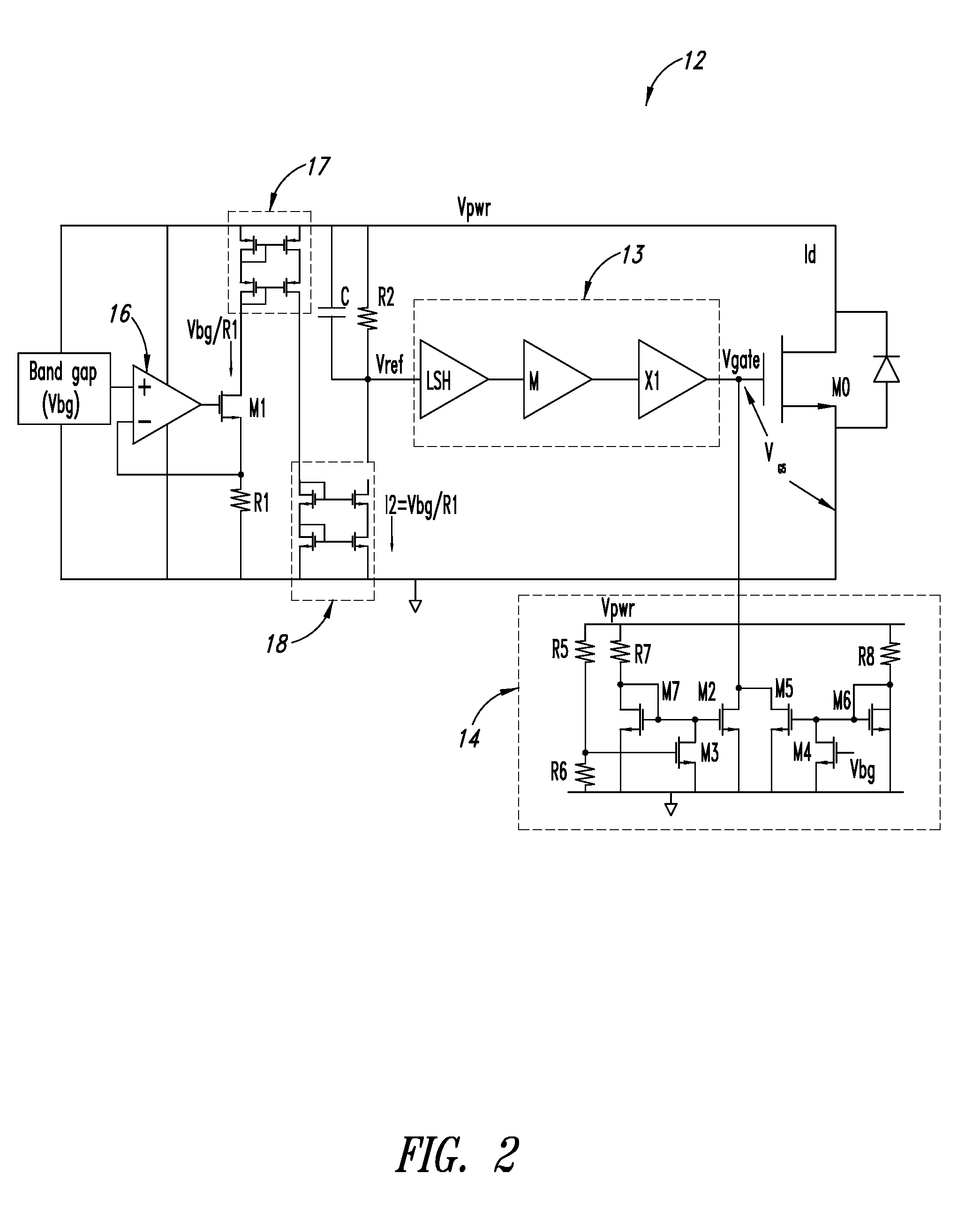Transient voltage clamping circuit
a transient voltage and clamping circuit technology, applied in the direction of electric variable regulation, emergency protective arrangements for limiting excess voltage/current, instruments, etc., can solve the problems of increasing the cost of hdd, increasing the voltage in the power supply, and destroying the asic, so as to achieve accurate activation and low cost , the effect of low activation threshold
- Summary
- Abstract
- Description
- Claims
- Application Information
AI Technical Summary
Benefits of technology
Problems solved by technology
Method used
Image
Examples
Embodiment Construction
[0019]Referring to FIG. 1, a hard disk drive (not shown) includes a motor 20 which receives power through a power ASIC 10. The motor 20 receives power on lines A, B, C from power ASIC 10, each of those lines having an impedance model which includes inductive and resistive impedances. UA, UB and UC are gate drive signals for upper power DMOS transistors for each line A, B and C. LA, LB and LC are for corresponding lower power DMOS transistors. These DMOS transistors provide current to the motor 20.
[0020]Power ASIC 10 receives power from an external 12 volt power supply VP12. Power ASIC 10 includes a voltage clamping circuit 12 for clamping transient voltages which are dumped from the inductive loads in the motor 20 and is powered from the power supply rail of the power ASIC 10. The duty cycle of the dumped current is generally small (typically in the order of 3%) and therefore the location of the clamping circuit on the power ASIC 10 does not pose a power dissipation problem if an ap...
PUM
 Login to View More
Login to View More Abstract
Description
Claims
Application Information
 Login to View More
Login to View More - R&D
- Intellectual Property
- Life Sciences
- Materials
- Tech Scout
- Unparalleled Data Quality
- Higher Quality Content
- 60% Fewer Hallucinations
Browse by: Latest US Patents, China's latest patents, Technical Efficacy Thesaurus, Application Domain, Technology Topic, Popular Technical Reports.
© 2025 PatSnap. All rights reserved.Legal|Privacy policy|Modern Slavery Act Transparency Statement|Sitemap|About US| Contact US: help@patsnap.com



